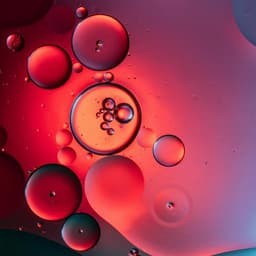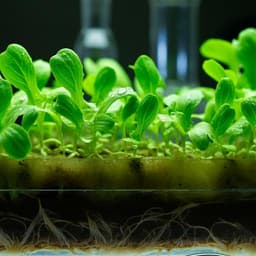
Chemistry
Critical impacts of interfacial water on C-H activation in photocatalytic methane conversion
H. Sato, A. Ishikawa, et al.
This groundbreaking research by Hiromasa Sato, Atsushi Ishikawa, Hikaru Saito, Taisuke Higashi, Kotaro Takeyasu, and Toshiki Sugimoto reveals how interfacial water species can enhance photocatalytic methane conversion, achieving over 30 times improvement in conversion rates under wet conditions. Discover the role of these unique water interactions in advancing non-thermal catalytic processes.
~3 min • Beginner • English
Related Publications
Explore these studies to deepen your understanding of the subject.







